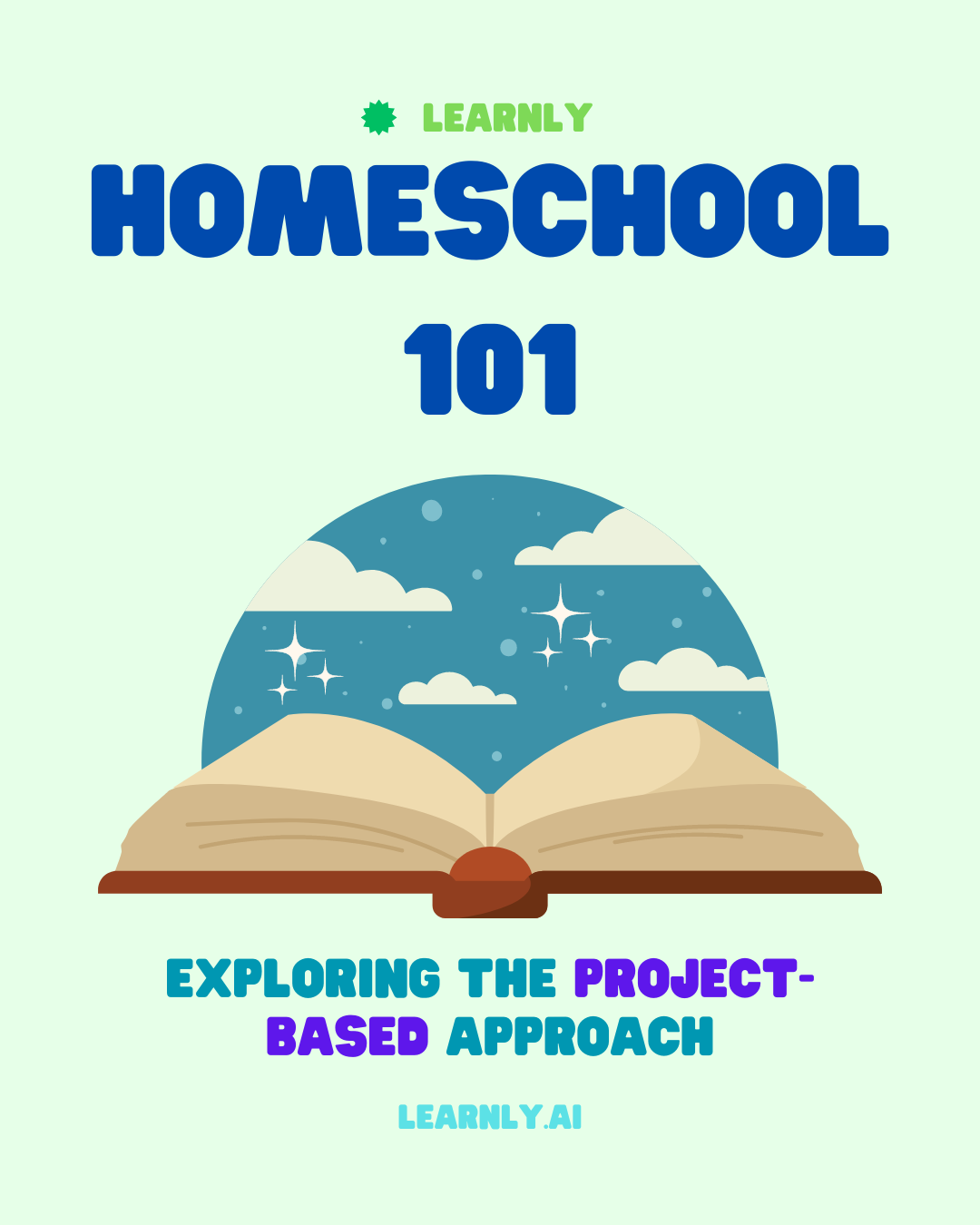Introduction to the Project-Based Approach to Homeschooling
As the world continues to evolve and change at a rapid pace, traditional methods of education are also undergoing a transformation.
One of the most innovative and exciting approaches to learning is project-based homeschooling.
This unique approach puts the power of learning in the hands of the student, allowing them to explore and discover their passions and interests in a way that traditional schooling cannot match.
Project-based homeschooling is a dynamic and engaging method of learning that encourages students to take ownership of their education.
Instead of simply memorizing facts and figures, students are encouraged to dive deep into a subject, exploring it from every angle and engaging in hands-on, experiential learning.
This approach to homeschooling is not only effective, but it is also captivating and intriguing.
It allows students to connect with their studies in a way that is both meaningful and rewarding, and it fosters a sense of curiosity and excitement that traditional schooling often fails to inspire.
So, what exactly is project-based homeschooling? Simply put, it is an approach to education that prioritizes project-based learning.
Rather than merely reading a textbook or listening to a lecture, students are encouraged to dive deep into a subject, exploring it from every angle and engaging in hands-on, experiential learning.
This can take many forms, from building a robot to writing a novel, from conducting scientific experiments to designing a website.
The key to project-based homeschooling is that it is student-led.
Rather than being told what to learn, students are encouraged to explore their interests and passions and design their own projects based on those interests.
This allows for a level of creativity and innovation that is impossible in traditional schooling.
Overall, project-based homeschooling is an exciting and engaging approach to education that is well-suited to the needs and interests of today's students.
Whether you are a homeschooling parent or a student looking for a more engaging way to learn, project-based homeschooling is an approach that is well worth exploring.
What is the Project-Based Approach to Homeschooling?
A project-based approach is one of the most dynamic and engaging learning methods available.
Rather than simply memorizing facts and figures, students are encouraged to dive deep into a subject, exploring it from every angle and engaging in hands-on, experiential learning.
In addition, this approach is student-led, which means that students are able to explore their own interests and passions in a way that is both meaningful and rewarding.
One of the most unique aspects of the project-based approach to homeschooling is that it encourages students to think outside the box.
Instead of simply following a set curriculum or lesson plan, students are encouraged to develop their own projects and ideas.
This allows for a level of creativity and innovation that is simply not possible in traditional schooling.
It fosters a sense of curiosity and excitement that can last a lifetime.
Another key benefit of the project-based approach is allowing students to learn independently.
Children are no longer forced to keep up with the rest of the class, and students can take as much time as they need to fully explore a subject.
This can be particularly helpful for students who struggle with specific topics, as they are able to take the time they need to fully understand the material before moving on.
One of the most exciting aspects of the project-based approach is that it can be tailored to each student's specific needs and interests.
Whether a student is interested in science, art, music, or history, there is a project-based approach that can be designed to meet their needs.
This means that students can pursue their interests and passions in a way that is both engaging and rewarding.
The project-based approach to homeschooling is an innovative and exciting way to learn. It encourages creativity, innovation, and a sense of curiosity that can last a lifetime.
Whether you are a homeschooling parent or a student looking for a more engaging way to learn, the project-based approach is an approach that is well worth exploring.
Who Should Use the Project-Based Approach to Homeschooling?
The project-based approach to homeschooling is an excellent fit for many students.
This approach is particularly well-suited to children who are independent learners and who thrive on the freedom to explore their own interests and passions.
On the other hand, if you have a student who is curious, creative, and self-motivated, then the project-based approach may be the perfect fit for them.
Students who struggle with traditional classroom settings may also find the project-based approach better fits their learning style.
This system allows students to work at their own pace without pressure to keep up with their classmates.
This can be particularly helpful for students who struggle with certain subjects or need extra time to fully understand the material.
Another group of students who may benefit from the project-based approach is those with a specific passion or interest that they want to explore in-depth.
Whether it's a love of science, art, or history, the project-based approach allows students to dive deep into their area of interest and develop a strong foundation of knowledge and skills.
The project-based approach is also an excellent fit for families who value creativity and innovation in education.
This approach encourages students to think outside the box and develop their own ideas and projects, leading to a deeper understanding of the material and a greater sense of ownership over their education.
Finally, the project-based approach is ideal for families who want to create a personalized and flexible learning experience for their children.
Whether you have an advanced student in a particular subject or need extra support, the project-based approach allows you to tailor your strategy to meet your child's specific needs.
Across the board, the project-based approach to homeschooling is a flexible and personalized way to learn that is well-suited to a wide range of students.
Whether your child is a self-motivated learner, a struggling student, or simply someone passionate about a particular subject, the project-based approach can help them reach their full potential.
Why Choose the Project-Based Approach to Homeschooling?
There are many reasons why families may choose the project-based approach to homeschooling.
One of the most compelling reasons is that this approach provides a highly personalized learning experience.
With project-based learning, students have the opportunity to explore their own interests and passions and to pursue subjects that genuinely excite them.
This can lead to greater engagement and motivation and, ultimately, to a deeper and more meaningful understanding of the material.
Another key benefit of the project-based approach is its fostering of creativity and innovation.
Rather than simply memorizing facts and figures, students are encouraged to think critically, solve problems, and come up with their own ideas and solutions.
This can be particularly helpful for students interested in pursuing careers in fields like science, technology, engineering, and math, where creativity and innovation are highly valued.
The project-based approach is also highly flexible and adaptable.
This means it can be tailored to meet individual students' specific needs and learning styles.
Whether your child is a visual, auditory, or kinesthetic learner, some project-based activities and resources can be customized to suit their unique needs.
The project-based approach also encourages collaboration and teamwork.
Students often collaborate on projects, sharing ideas, resources, and feedback.
This not only helps to build social skills and teamwork abilities but also fosters a sense of community and camaraderie among students.
Finally, the project-based approach can be a great way to prepare students for the real world. In today's rapidly changing economy, thinking critically, innovating, and working collaboratively are highly valued skills.
By emphasizing these skills in the context of project-based learning, students are better prepared for the challenges and opportunities of the 21st century.
The project-based approach to homeschooling is an innovative and engaging way to learn.
Whether you want to personalize your child's learning experience, foster creativity and innovation, build social skills and teamwork abilities, or prepare your child for the future, the project-based approach is an excellent choice for families committed to education and learning.
How to Use the Project-Based Approach to Homeschooling
Using the project-based approach to homeschooling is a highly flexible and customizable process that can be adapted to suit individual learners' unique needs and learning styles.
Here are some tips and strategies for using the project-based approach in your homeschooling:
- Identify your child's interests and passions: The first step in using the project-based approach is to identify your child's interests and passions. This can be done through conversations, observations, and informal assessments. Once you have a sense of what your child is interested in, you can begin to tailor your approach to suit their needs and preferences.
- Plan projects and activities: The next step is to plan projects and activities that align with your child's interests and passions. This can involve researching and gathering resources, brainstorming ideas, and developing a plan of action. You can also involve your child in the planning process, giving them a greater sense of ownership and investment in the learning process.
- Set goals and objectives: It's essential to set clear goals and objectives for each project or activity. This can help your child stay focused and motivated and can also help you track progress and assess learning outcomes. Goals and objectives can be tailored to suit your child's individual needs and learning style.
- Emphasize critical thinking and problem-solving: The project-based approach fosters critical thinking and problem-solving skills. As you work on projects and activities, encourage your child to think deeply about the material, ask questions, and develop creative solutions to problems.
- Reflect and evaluate: At the end of each project or activity, take some time to reflect on what worked well and what could be improved. This can involve reviewing completed work, discussing outcomes with your child, and assessing learning objectives. This feedback can then refine future projects and activities and continuously improve the learning process.
Overall, using the project-based approach to homeschooling involves a process of exploration, discovery, and innovation.
By identifying your child's interests and passions, planning engaging projects and activities, setting clear goals and objectives, emphasizing critical thinking and problem-solving, and reflecting and evaluating the learning process, you can create a rich and rewarding learning experience that fosters creativity, curiosity, and a love of learning.
Conclusion
In conclusion, the project-based approach to homeschooling is a highly engaging, flexible, and innovative learning method.
This approach allows students to explore their own interests and passions, think critically and creatively, work collaboratively, and develop valuable skills that will serve them well in the future.
So, whether you are looking to personalize your child's learning experience, foster creativity and innovation, build social skills and teamwork abilities, or prepare your child for the challenges and opportunities of the 21st century, the project-based approach is a great choice for homeschooling families.
To use the project-based approach to homeschooling, it's essential to identify your child's interests and passions, plan engaging projects and activities, set clear goals and objectives, emphasize critical thinking and problem-solving, and reflect and evaluate the learning process.
This involves a process of exploration, discovery, and innovation that can be tailored to suit individual students' unique needs and learning styles.
The project-based approach to homeschooling is an exciting and dynamic way to learn.
By emphasizing creativity, curiosity, and a love of learning, this approach can help students to achieve their full potential and to prepare for success in the 21st-century economy.
Whether you are a seasoned homeschooling veteran or are just starting out, the project-based approach is worth exploring to enhance your child's learning experience and foster their intellectual growth and development.
Resources & Tools
Here are some resources and tools that can help readers learn more about the project-based approach to homeschooling:
- Project-Based Homeschooling: Mentoring Self-Directed Learners by Lori Pickert - This book offers a comprehensive guide to the project-based approach to homeschooling, including strategies for planning and implementing projects, fostering creativity and innovation, and building valuable skills.
- The Project-Based Homeschooling website: This website offers a wealth of information and resources on project-based homeschooling, including articles, blog posts, and forums where homeschooling parents can connect and share ideas.
- Homeschooling organizations and support groups: Homeschooling organizations and support groups can be an excellent resource for learning more about the project-based approach to homeschooling. They can provide information on curriculum options, connect you with other homeschooling families, and offer workshop and project-based learning training.
- Online learning platforms: Many online learning platforms offer project-based courses and activities, including Outschool, Khan Academy, and DIY.org. These platforms can be a great way to supplement your homeschooling curriculum and provide your child with opportunities to work on projects and collaborate with other students.
- Online communities and social media: Numerous online communities and social media groups focus on homeschooling and project-based learning. These can be a great way to connect with other homeschooling families, ask questions, and share ideas and resources.
- Local libraries and museums: Local libraries and museums can be a great resource for finding project ideas and resources and participating in workshops and events focused on project-based learning.
Overall, many resources and tools are available to help homeschooling families learn more about the project-based approach to learning.
Suppose you prefer books, online courses, or social media communities. In that case, there are many ways to connect with other homeschooling families and find the information and resources you need to make your homeschooling journey successful.
/>





